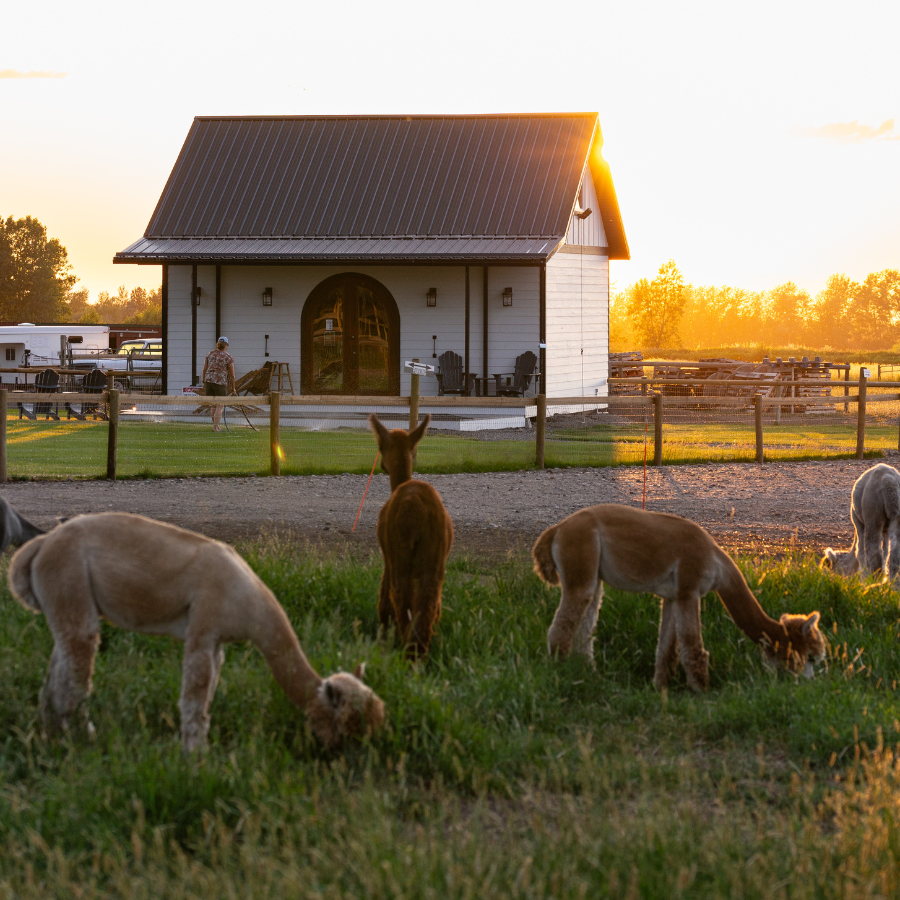With so much transition in our economy, I have been asked many times is the alpaca industry still valid, or is it a fleeting house of cards much like many other markets seemed to be- llamas, ostriches, buffalo and all of the others. The problem with the meat based products (buffalo, ostrich) is that there is only so much room on Safeway's shelf for meat. The cattle lobbyist are one of the strongest lobby groups in the world. If Ted Turner with his 10K buffalo and $7 Billion dollars cannot bust through into the meat market and get shelf space, no one will. Emus can be used for meat or their oil, but they are extremely difficult to raise and you have to kill them, not giving you a lot of product for the cost and risk involved. I spoke with one guy who said they had to kill 30 ostrich a day to break even, so he could not make money. Llamas are meant to be a beast of burden for packing or guarding. We have 2 llamas that we use with our alpacas. They were extremely high priced in the 80s and a lot of people got burned, but this was always a house of cards. There are only so many people that need a packing or guarding animal.
The difference with alpaca is that it hard to argue against extremely soft, warm, high performance clothing. Who doesn't need warm socks or a hat when the weather gets cold? The function of the alpaca is for its fiber. Its a textile animal that has a viable, in demand product for a large majority of the population. The are easy and inexpensive to raise, so you can make a profit with them as a textile based business.
The Alpaca Market
Market Influence of Price
Many factors will play into the actual value of your animals, including:
1. Alpaca fiber is becoming more popular as more textile manufacturers, fashion designers, and purchasing public demand quality fiber, there will be a steadily increasing demand.
2. Selective breeding in North America will produce a healthier alpaca herd and improve the fiber and conformation.
3. The price of quality breeding stock will remain high in the next decade. Limited supply driven by increasing demand lead to increasing value of each quality alpaca capable of reproducing itself.
4. AOBA and the regional associations of alpaca breeders market the benefits of owning alpacas and AlpacaWear™, fueling a dramatic interest in the United States
5. Given the slow reproductive rate of alpaca and the superb quality of their fiber, consumers will continue to want more fleece than alpaca farmers can produce, thus keeping the demand for raising alpacas and alpaca fiber high.
6. Alpaca farmers who have been in business for four years or more routinely report returns on their capital expenditure which range between 25 to 60 percent. Many variables can influence actual profits, but the investment of alpacas has proven over time a record for profitability and promises to become even more financially rewarding in the future.
7. Unlike most other home business inventories, alpacas are fully insurable. Monthly premium costs will protect from catastrophic loss of animals and capital.
Animal Influence of Price
Factors influencing individual alpaca prices include color, conformation, fleece quality and quantity, age, and sex. Females sell for more money on average than males, but herdsire quality males demand the top individual prices. Well-conformed alpacas sell for elevated prices. Fleece density, uniformity and fineness also affect the animal's price.
The range of value for females is currently between $2,500 and $25,000. Females with unique attributes have sold for more than $40,000. Young, unproven, high quality stud prospects routinely sell for between $7,500 and $25,000, and the highest quality males with unique characteristics or exceptional offspring have sold in excess of $100,000. In the Spring of 2010, a new world record was set in Las Vegas
See more information at https://www.alpacasofmontana.com/
See more information at https://www.alpacasofmontana.com/
